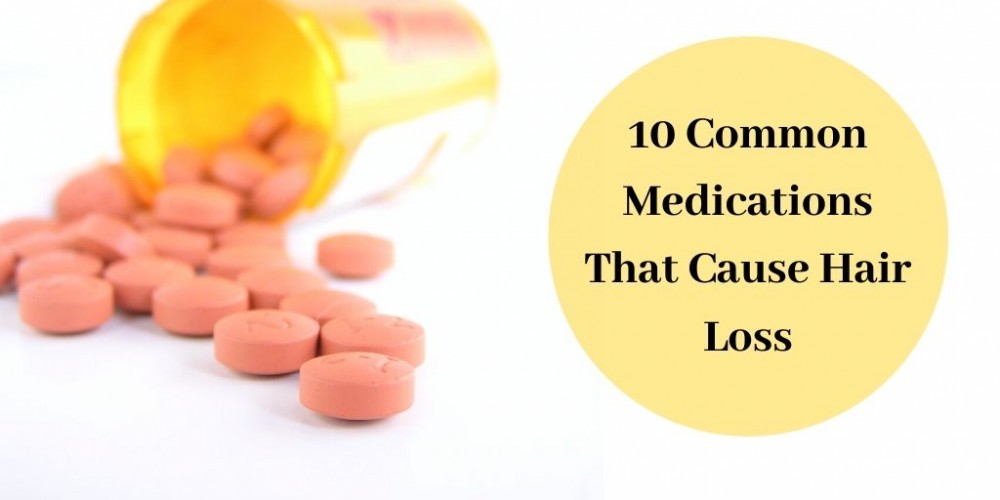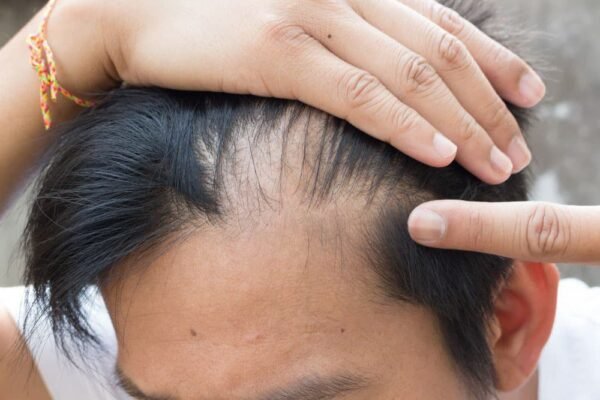Table Of Content

It can also cause other hair-related effects, such as curling, graying, and changing the appearance or texture. Fortunately, hair loss caused by antifungals is reversible, and complete regrowth can be expected within three to six months after stopping or reducing the dosage. Many commonly prescribed medications can cause temporary hair loss, baldness, and even permanent hair loss. Most of the time, the hair loss is reversible, with hair growing back a few months after stopping or reducing the medication. Where possible, the best way to treat drug-induced alopecia is to stop taking the medication responsible for the hair loss. However, people should not stop taking a medication without their doctor’s agreement.
Products & Services
FDA Probes Possible Ozempic Side Effects Including Suicidal Thoughts, Hair Loss - DrugWatch.com
FDA Probes Possible Ozempic Side Effects Including Suicidal Thoughts, Hair Loss.
Posted: Thu, 04 Jan 2024 08:00:00 GMT [source]
Although statins were designed to lower cholesterol levels by reducing the production of cholesterol by the liver, there’s a small chance they can lead to hair loss. Two particular drugs to look out for are simvastatin (brand name Zocor) and atorvastatin (brand name Lipitor). Another group of antihypertensives are called ACE inhibitors, which help relax veins and arteries to lower blood pressure. Examples include lisinopril (brand names Prinivil and Zestril), captopril (brand name Capoten), and enalapril (brand name Vasotec). If you’ve recently noticed an increase in the volume of hair tangled in your brush or lining the shower drain, then it might be time to look into what’s causing it. If you think your hair is thinning or you’re shedding excessively, one of the first places you can look for answers might be your medicine cabinet.
How To Diagnose Drug Induced Hair Loss
A 2013 review looked at spironolactone as a medication for female pattern hair loss. Research showed it to be an effective treatment for reducing hair loss, especially when combined with minoxidil. Also, a 2023 review showed that topical spironolactone was an effective treatment for androgenic alopecia and was safe for both men and women.
What are the treatment options for hair loss?
In addition to medications, certain vitamin and mineral supplements may also be helpful for managing hair loss and hair regrowth. This is because some vitamin and mineral deficiencies can contribute to losing your hair. Tinea capitis, or scalp ringworm, is hair loss caused by a fungal infection. It is characterized by hair falling off in circular patches, which can grow back over time.
Addressing shortfalls through diet and supplements: Does it help hair growth?
If a certain medication is causing the hair loss, your doctor may advise you to stop using it for a few months. With chemotherapy-related hair loss, being gentle with hair may help. Some people choose to cut their hair short or wear wigs during treatment.
Propecia is known to affect blood levels of prostate-specific antigen (PSA), a lab value that is looked at during prostate cancer screening. Lower levels of PSA may present an unclear picture to your healthcare provider and cause inaccurate readings. You're likely to first bring your concerns to the attention of your family doctor. He or she may refer you to a doctor who specializes in the treatment of skin problems (dermatologist). If your hair loss is due to a medical condition, the cost of a wig might be covered by insurance. Hair loss can occur if you wear pigtails, braids or cornrows, or use tight hair rollers.
New Alopecia Areata Treatment Aims To Help Adults and Adolescents - Yale Medicine
New Alopecia Areata Treatment Aims To Help Adults and Adolescents.
Posted: Thu, 06 Jul 2023 07:00:00 GMT [source]
Types of Drugs That May Cause Hair Loss
This dermatologist is using a dermatoscope to examine a patient’s scalp. You can search by location, condition, and procedure to find the dermatologist that’s right for you. It can smooth out deep wrinkles and lines, but the results aren’t permanent.

What makes alopecia worse?
It typically only affects hair on the scalp and is diffuse in nature, meaning that the hair loss is spread across the scalp as opposed to patchy. Hair may fall out when shampooing or brushing hair, but it does not fall out in clumps. Drugs cause hair loss by interfering with the normal cycle of scalp hair growth.
Anagen effluvium
Anticoagulant medications such as heparin and warfarin have rare side effects of causing hair loss. Research is promising regarding the effectiveness of popular hair loss medications. However, more research is needed overall, particularly on the long-term effects of using hair loss treatments. The AAD writes that dermatologists can recommend OTC and prescription medication for hair loss, including minoxidil. The step is to identify what's causing your hair loss and consult your healthcare provider before stopping your medication.
Other early signs of alopecia include a noticeable increase in the number of shed hairs in hairbrushes and shower drains and on pillows. Medications that prevent seizures, like valproic acid (Depakote) and trimethadione (Tridione), can lead to hair loss in some people. Some statin drugs like simvastatin (Zocor) and (atorvastatin) Lipitor have been reported to cause hair loss. Anticoagulants like heparin and warfarin are used to thin the blood and prevent blood clots and certain health concerns in some people (like those with heart conditions). High doses of vitamin A and medications derived from it can cause hair loss.
There are several steps to make a diagnosis of drug-induced alopecia and decide on the appropriate course of action. A person can use this service to search for the lowest pharmacy prices for a wide range of medications. Hers offers free online visits, free shipping, and unlimited messaging with Hers doctors for follow-up questions. Online consultations cost $25, which typically covers the doctor’s evaluation and the prescription.
User experiences and results will vary from person to person and you may not see the same results as someone else using the same medication. There’s a range of treatment options for hair loss, but the best option for you will depend on what’s causing your hair loss. With an accurate diagnosis, many people who have hair loss can see hair regrowth. If you need treatment for regrowth, the earlier you start, the more likely you are to see regrowth. Medications that alter the levels of hormones in the body may also be linked to hair loss in some patients.
So, while some people taking weight loss drugs have reported hair loss, that loss could be due to malnutrition. Weight loss medications like phentermine can cause hair loss, but the side effect isn’t often listed. This is because dieters who lose their hair are often also nutrient-deficient or may have underlying health conditions contributing to their hair loss. One type acne of vitamin A-derived medication, isotretinoin (Accutane) and tretinoin (Retin-A) can cause hair loss. Because there can be other serious side effects as well, you may want to discuss other options with your dermatologist. Hair loss, or alopecia, is a condition both men and women may experience during their lives as a result of health-related issues, genetics, and medications.













